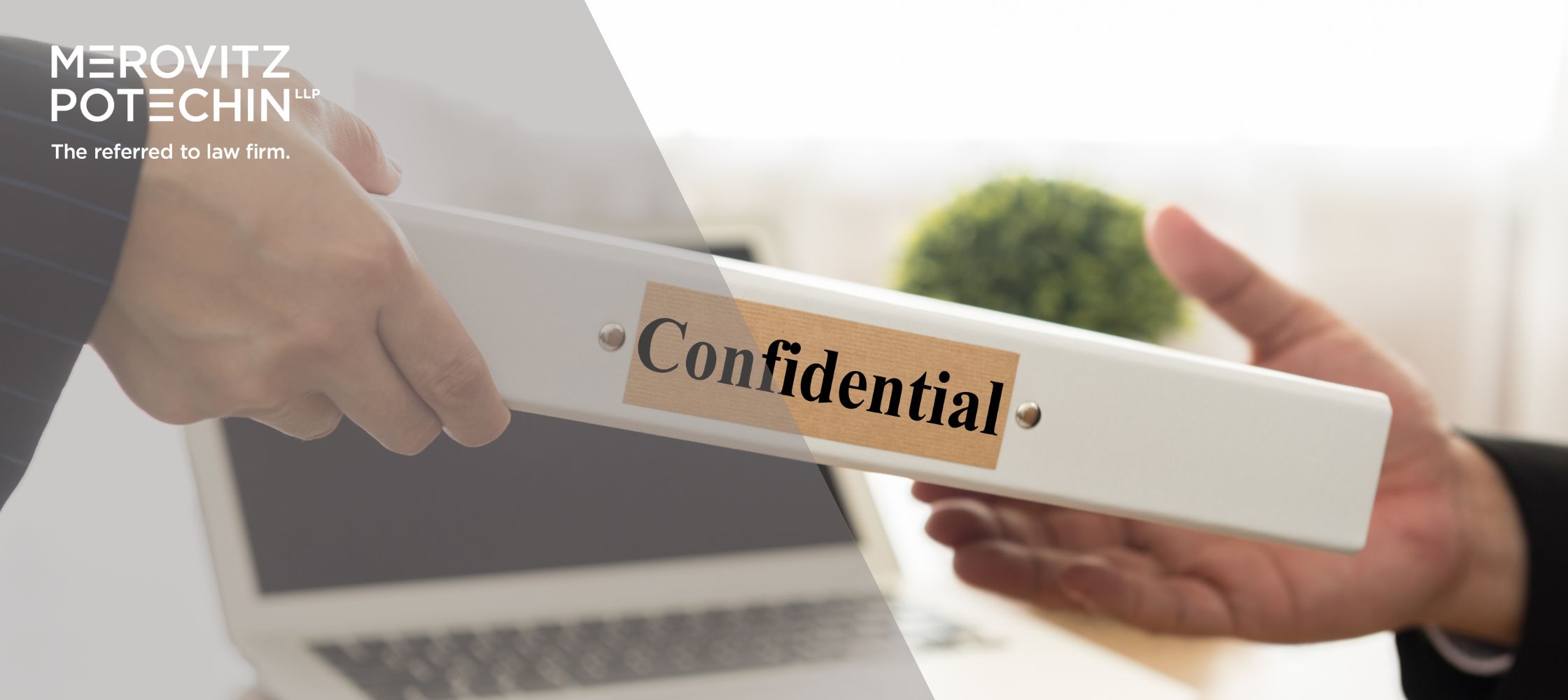Categories
Don’t Forget to Drain the Swamp! – Ten Tips for Keeping a Lid on Litigation Costs

Let’s face it. Litigation is tough. Especially for individuals and small businesses who might not have the money to spend on it. Let’s see…do we finally upgrade from Windows 7, or do we spend all our money on lawyers? Tough choice…
In this blog post, I share some tips and tricks based on my experience for shortening litigation and trying to keep the costs manageable, to the extent possible.
1. Determine Your Objective
One of the biggest pitfalls of litigation is not defining success at the outset. It’s hard to avoid mission creep if you don’t know what the mission is.
The only real yardstick for success in most civil litigation is money. If you are a Plaintiff, the goal is typically to put as much money into your pocket net of legal fees and disbursements as possible. If you are a Defendant, the goal is typically to pay as little as possible, including in terms of legal fees and disbursements.
If you spend $25,000 to “win” in Small Claims Court, or $40,000 to avoid paying someone a penny, chances are you haven’t really won at all. Likewise, a judgment against a corporation that no longer exists, or has no assets, is probably just a very expensive piece of paper.
Most of the time, your lawyer’s job isn’t to win the case, it’s to provide advice and help you achieve the most economically sensible outcome.
2. Don’t Lose Sight of Your Objective
Sometimes we get so caught-up in the fight, we forget what our objective was in the first place. When I was growing up, my father used to tell me “When you’re up to you @$$ in alligators, it’s hard to remember the plan was to drain the swamp.”
Sometimes we get so caught up in the process, arguing motions, looking for documents, dotting our “I’s” and crossing our “T’s” that we forget what we were trying to accomplish in the first place. Remember, it’s probably only a win if you have achieved an economically sensible outcome!
3. Ask for a Budget
Yes, budgeting for litigation is difficult. Most litigators bill by the hour. Any proposed budget is likely to come with the caveat that litigation is unpredictable, and the cost involved fluctuates. That’s true. But that doesn’t mean you shouldn’t ask for an estimate. At the very least, investigate who will be working on your file, and what the anticipated steps are.
A word about hourly rates: the hourly rate matters, but maybe not as much as you think. A junior lawyer might be less costly by the hour but will often need more time to get the job done. They might also lack the necessary experience. Delegating to more junior lawyers and staff can be a way to reduce cost, but it can also lead to duplication. At the end of the day, what matters is that the work gets done efficiently without sacrificing quality.
4. Consider an Early Resolution
Almost every civil case has a “tipping point” when settlement becomes possible. Sometimes this is only after “litigation fatigue” sets in. But it doesn’t have to be.
Sometimes, an early resolution can be achieved just by having your lawyer reach out to opposing counsel before the parties get entrenched. Another good option can be an early mediation. In much of Ontario (including Ottawa) mediation is mandatory before a case can be set down for trial.
Outside of the employment law sphere, however, early mediation seems to be an under-utilized tool. For most lawyers, the go-to approach is to complete the discovery process first, which can be unnecessarily costly in some cases.
Always remember, with a good settlement, nobody is happy.
5. Be Clear, Concise, and Organized
When you pay by the hour, time is money. If you provide your lawyer with a clear and concise summary of the facts, that saves time. If you provide direct answers to questions, that saves your lawyer time and you, money.
The same applies to documents. If you bring in a grocery bag or banker’s box filled with receipts, expect to pay a lot of money for a law clerk to sort through them, scan them, and remove things that are irrelevant. That’s something you can do yourself.
6. Avoid Unnecessary Motions
Sometimes interlocutory (or “pre-trial”) motions are a necessary evil. They can be a good tactic, especially if you are a defendant with deep pockets and enough money is at stake. But you need to think carefully before bringing them. If you lose a motion, the other side will be empowered and their willingness to settle the case may decline. Remember to ask yourself – is this helping me achieve my objective?
7. Don’t Leave Things Out
Your lawyer needs the whole story*1. Especially when the other side has the whole story! Don’t put off sharing the bad facts with your lawyer. In a civil case, they are usually coming out one way or another. It can be costly to adjust tactics halfway through a lawsuit when the “other shoe drops.”
8. Keep Calm, and Litigate On
I’m an emotional guy. I get it. But litigating for revenge, or retribution, or any of the other “R’s” (retaliation, remorse, regret…you get the idea) is rarely a good idea. Sometimes you need to vent, and as your lawyer, I’m always wiling to listen. That doesn’t mean we should allow those emotions to determine litigation strategy. Besides, therapy is cheaper, and is hopefully provided by someone trained to help you with your problems!
9. Be as Objective as Possible
My grandfather always said, “There are three sides to every story. Our story; their story; and the truth.” It helps if you keep this in mind. Also remember that anything can happen in Court.
10. Keep the Lines of Communication Open
Sometimes, lawyers just get in the way. If the opportunity presents itself, talk to the other side. Chances are they are your former business partner, romantic partner, sibling, or partner in crime (either literally or figuratively). The point is – you once had common ground. See if you can find it again by reaching out directly to resolve issues.
*1 There might be some specific exceptions to this rule.

The content on this website is for information purposes only and is not legal advice, which cannot be given without knowing the facts of a specific situation. You should never disregard professional legal advice or delay in seeking legal advice because of something you have read on this website. The use of the website does not establish a solicitor and client relationship. If you would like to discuss your specific legal needs with us, please contact our office at 613-563-7544 and one of our lawyers will be happy to assist you.






